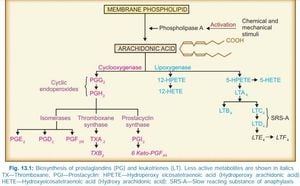Australia Day is approaching, and 2025 will see many Australians re-assessing the meaning of the national holiday, which is observed on January 26 each year. Scheduled for January 27 due to the date falling on a Sunday this year, the holiday is not only about celebrating national pride but also reflects the complex history associated with its observance.
The day marks the arrival of the First Fleet at Sydney Cove in 1788, symbolizing British colonization and the subsequent impact it had on the Aboriginal and Torres Strait Islander peoples. While this date has been celebrated by many as Australia Day since the early 19th century, it is also recognized by others as 'Day of Mourning' due to the historical trauma associated with it.
Recent polling indicates significant public sentiment about Australia Day. A survey conducted by News Corp suggested almost 90% of Australians believe the day should continue to be celebrated on January 26. This growing consensus starkly contrasts with the increasing activism among certain groups who wish to move the date. Their position cites the date as one representing dispossession and grief for Indigenous communities, and thousands are expected to participate in protests and vigils this Australia Day weekend.
According to the Institute for Public Affairs, young Australians seem to be skewing more toward national pride, with some surveys showing support for continuing celebrations on January 26 among the 18-24 demographic. This assertion, though, is challenged by findings from the Deakin Contemporary History Survey, which indicate more than 50% of younger respondents are against celebrating Australia Day on its traditional date.
Indeed, public sentiment appears solidifying rather than shifting dramatically one way or the other. The Deakin survey demonstrated no significant volatility over the past three years, with around 40% of participants believing Australia Day should not take place on January 26. This trend continues to reflect how residents are weighing their feelings about the day.
Even local governments are taking steps to address this dilemma. Geelong, among others, has pivoted toward celebrating January 26, likely believing they reflect the broader sentiment of nationalistic pride shifting in Australia's culture. For many, this embracing of the day stems partly from ideological shifts observed within society.
A snapshot of the political atmosphere showcases growing division over Australia Day. Opposition Leader Peter Dutton has emphasized his intent to entrench January 26 as Australia’s official day, renewing commitments to uphold citizenship events on this date. On the other hand, Prime Minister Anthony Albanese remains non-committal about changing the date but has sat back on the calls for broader acknowledgment of Australia’s historical narratives.
Polling indicates most Australians are less inclined to support businesses or entities actively boycotting January 26, instead perceiving this holiday as integral to their national identity. Yet, alongside this, many Australians recognize the outdated elements tied to the day, urging for occurrences of acknowledgment and remembrances.
Organizations are increasingly supporting employees who wish to abstain from celebrations on January 26, offering alternative holidays or paid time off. A significant majority, at 70%, of Australians working report they might opt for employment on Australia Day, reflecting wider community sentiment yearning for authenticity and sensitivity surrounding complex historical narratives.
With the historical connotations of January 26 firmly entrenched, conversations surrounding Australia Day continue to evolve. Some factions support replacing January 26 with another date altogether to honor all Australians, whereas others prefer to retain the name but adjust the celebrations or incorporate more Indigenous perspectives within the festivities.
The most recent poll results show not all generations feel the same about Australia Day. People aged 75 and older overwhelmingly disagree with notions of changing the holiday, reflecting trends where older Australians often exhibit more staunch nationalistic sentiments.
Nayuka Gorrie and Associate Professor Crystal McKinnon have highlighted, based on decades of activism, the growing awareness and acknowledgment of historical grievances among Aboriginal communities. Strikingly, the hesitance around changing Australia Day manifests within the political discourse, especially following the fallout of the Voice referendum which similarly underscored the divides present within Australian society.
While Australia Day has historically been associated with celebration, it increasingly prompts reflection on the nation's past and the route toward reconciliation. Those against celebrating on January 26 propose alternative days to encourage inclusivity, supporting the idea of renaming or redesigning the holiday to embody diverse narratives.
Australia Day 2025 will witness multiple factions expressing their stances, from protest marches to celebratory events centering on community and the rich narratives surrounding First Nations peoples. It will bring forward discussions not only about national pride but also about social justice, history, and the future of race relations within Australia. The necessity for sensitive dialogues and thoughtful commemoration remains central to how Australians choose to honor their national identity and collective history moving forward.
If no middle ground or cohesive agreement emerges on the way forward, the debate around Australia Day risks becoming entrenched without resolution. Public opinion showcases remarkable divergence, and as such, as Australia Day approaches, the call to navigate the potential of change becomes more evident as the nation collectively reflects on its legacy.



